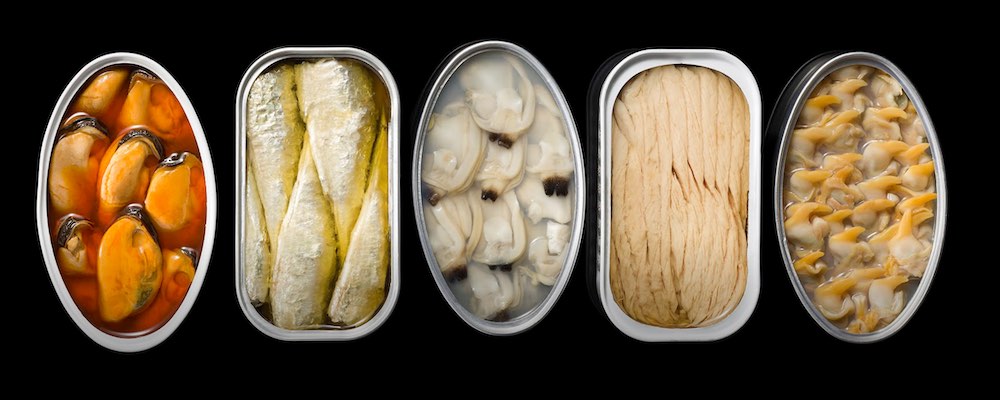 CANNED FOOD PRODUCTION IN SPAIN
CANNED FOOD PRODUCTION IN SPAINSpain is a major player in the canning industry thanks to the quality and variety of its products. Its choice of the best raw materials, a respect for keeping up traditions, and cutting-edge technology have made the country's industry a world benchmark.
The production of canned food in Spain is a prominent and traditional sector of the country's food processing industry. Spain is renowned for its high-quality canned products, particularly seafood, fruits, and vegetables, which are enjoyed domestically and exported worldwide. Here's an overview of canned food production in Spain:
Key Aspects of Canned Food Production in Spain
1. Scope and Specialties:
- Products: Spain excels in the production of:
- Canned Seafood: Tuna, sardines, anchovies, mussels, octopus, and clams.
- Canned Vegetables: Artichokes, peppers, asparagus, and tomatoes.
- *Canned Fruits: Peaches, pears, and citrus fruits.
- Ready-to-Eat Meals: Traditional Spanish dishes like paella and stews.
- Reputation: Spanish canned seafood, particularly from regions like Galicia, is considered a global benchmark for quality and flavor.
2. Process:
- Harvesting and Sourcing: Spain has access to abundant fresh seafood from the Atlantic Ocean and Mediterranean Sea, as well as fertile lands for cultivating fruits and vegetables.
- Preparation: Ingredients are carefully cleaned, cut, and seasoned, often incorporating traditional recipes and techniques.
- Canning: Foods are packaged in sterilized containers, often in olive oil, brine, or sauces to enhance flavor and preservation.
- Sterilization: Heat treatment ensures product safety and extends shelf life.
- Packaging: Spanish canned goods often feature premium and artistic packaging, reflecting their gourmet positioning.
3. Geographic Centers:
- Galicia: The hub of Spain’s canned seafood industry, known for its pristine coastal waters and artisanal techniques.
- Navarre and La Rioja: Regions renowned for high-quality canned vegetables, such as piquillo peppers and white asparagus.
- Andalusia: Focused on canned olives, tomatoes, and fruits.
- Valencia: Specializes in citrus-based canned products and paella.
4. Regulatory and Quality Standards:
- Certification: Spanish canned food producers comply with European Union food safety regulations, which are among the strictest globally.
- Protected Designations: Certain products, like Galician mussels, benefit from Protected Geographical Indication (PGI) labels, highlighting their origin and quality.
- Sustainability: Many companies are committed to sustainable fishing practices and eco-friendly production methods.
Advantages of Spanish Canned Food:
- Quality: Emphasis on premium ingredients and traditional recipes.
- Nutritional Value: Canning retains the nutritional benefits of fresh seafood, vegetables, and fruits.
- Export-Ready: Spanish canned food is a major export commodity, particularly in Europe, Asia, and the Americas.
- Convenience: Offers consumers the convenience of ready-to-eat meals and long shelf life.
Challenges and Innovations:
- Challenges:
- Competition from fresh and frozen alternatives.
- Balancing traditional methods with modern production demands.
- Innovations:
- Development of gourmet and organic canned products.
- Use of eco-friendly packaging, such as BPA-free linings.
- Adoption of advanced sterilization techniques to preserve taste and texture.
Economic Impact:
- The canned food sector significantly contributes to Spain’s economy, creating jobs in coastal and rural areas.
- Spanish canned food exports have a strong presence in international markets, reinforcing the country’s reputation as a leader in quality food production.
The canned food industry in Spain blends tradition with innovation, offering products that cater to both domestic consumers and an increasingly global market. Its focus on quality, sustainability, and culinary excellence ensures a competitive edge in the food processing sector.

The most important canned food packed in Spain for export is canned seafood. Spain is one of the world's leading producers and exporters of premium-quality canned seafood products. Some of the most notable items include:
1. Canned Tuna: Spain is a major exporter of canned tuna, particularly in olive oil, which is highly valued for its flavor and quality.
2. Sardines: Spanish canned sardines are sought after globally for their taste and high standards of preservation.
3. Anchovies: Spain is renowned for its canned anchovies, especially from regions like Cantabria, where they are delicacies.
4. Octopus, Squid, and Mussels: Canned octopus, squid in its ink, and mussels in escabeche (a tangy marinade) are also highly popular Spanish exports.
5. Clams and Razor Clams: These are often canned and exported as premium delicacies.
Mussels, cockles, razor clams, clams, and scallops from the Galician estuaries; tuna, melva, and mackerel from the Andalusian coast; and anchovies and bonito from the Cantabrian coast. Spain's rich marine life, with its coasts bathed by the Cantabrian and Mediterranean seas, and the Atlantic Ocean, makes for an incredible variety of canned fish and seafood products.
Spanish canned seafood is processed under strict quality standards, ensuring superior taste and preservation.Spain has centuries of expertise in seafood canning, with companies in Galicia (northwest Spain) being world leaders.
While seafood leads the way, Spain also exports other canned foods like vegetables (e.g., piquillo peppers, artichokes, olives) and legumes (e.g., chickpeas, lentils), but these are secondary to seafood in importance.
Spanish olives are a significant product for export and one of the most important canned foods exported by Spain. Spain is the world's largest producer and exporter of olives, particularly table olives (those eaten directly) and olive oil. Here's a closer look at the importance of Spanish olives in the global market.
The most common types of Spanish olives exported include:
- Manzanilla: A small, round, and green olive variety popular for its mild and slightly nutty flavor, commonly used in salads and as appetizers.
- Arbequina: A smaller, brownish-red variety with a fruity flavor, often used both for table consumption and olive oil production.
- Picual: A larger, robust-flavored olive, primarily used for producing olive oil but also exported as a table olive in certain markets.
- Hojiblanca: Known for its unique flavor, often a balance of sweet and bitter, also used for both table olives and olive oil.
2. Export Volume: Spain consistently ranks as the world's leading exporter of olives, accounting for over 50% of global exports. The most important export markets include:
- Europe (particularly Italy, France, and the UK)
- United States
- Japan and other parts of Asia
- Middle East
3. Preservation and Packaging: Spanish olives are exported in various forms, including:
- Canned olives : Often packed in brine, vinegar, or olive oil, ensuring long shelf life and preservation of flavor.
- Jarred olives: A more premium packaging option.
- Vacuum-packed or marinated olives: With herbs and spices for added flavor.
Thus, Spanish olives, whether in the form of canned olives or fresh, are an integral part of Spain's agricultural exports, celebrated for their quality, taste, and culinary versatility.
La produzione di conserve alimentari in Spagna è un settore di grande importanza economica e culturale, che si distingue per la qualità e la varietà dei suoi prodotti. Il paese è particolarmente rinomato per le conserve di pesce, frutta e verdura, molte delle quali sono apprezzate sia a livello nazionale che internazionale. Ecco una panoramica sulla produzione di conserve alimentari in Spagna:
Aspetti Chiave della Produzione di Conserve in Spagna
1. Specialità e Prodotti Principali
- Conserve di Pesce e Frutti di Mare:
- Tonno, sardine, acciughe, cozze, vongole, polpo, calamari e sgombro.
- La Galizia è famosa per le sue conserve di frutti di mare, spesso considerate di qualità superiore.
- Conserve di Verdure:
- Asparagi bianchi, peperoni piquillo, carciofi e pomodori.
- Questi prodotti sono spesso coltivati in regioni specifiche come Navarra e La Rioja.
- Conserve di Frutta:
- Pesche, pere, agrumi e altri frutti in sciroppo.
- La Comunità Valenciana e l’Andalusia sono importanti per la produzione di frutta in scatola.
- Piatti Pronti:
- Piatti tradizionali spagnoli come paella, stufati e tapas confezionati.
- Questi prodotti combinano la praticità con i sapori autentici della cucina spagnola.
2. Processo di Produzione
- Raccolta e Selezione: Gli ingredienti vengono raccolti freschi, spesso localmente, per garantire la qualità.
- Preparazione: Il pesce viene pulito e conservato in olio d’oliva, salamoia o salse; le verdure e la frutta vengono pelate, tagliate e condite.
- Confezionamento: Gli alimenti vengono sigillati in contenitori sterilizzati per prevenire la contaminazione.
- Sterilizzazione: Trattamenti termici assicurano la sicurezza alimentare e la lunga durata.
- Etichettatura e Distribuzione: Le conserve vengono etichettate, spesso con design premium, e distribuite in Spagna e all’estero.
3. Aree Geografiche di Produzione
- Galizia: Leader nella produzione di conserve di pesce e frutti di mare grazie alle sue acque pulite e tecniche artigianali.
- Navarra e La Rioja: Famosi per le conserve di verdure di alta qualità come gli asparagi e i peperoni piquillo.
- Andalusia: Specializzata in conserve di olive, pomodori e agrumi.
- Valencia: Nota per i prodotti a base di agrumi e piatti pronti come la paella.
4. Regolamentazione e Qualità
- Certificazioni: Le conserve spagnole rispettano le rigide normative dell’Unione Europea in materia di sicurezza alimentare.
- Indicazioni Geografiche Protette (IGP): Alcuni prodotti, come le cozze della Galizia, hanno riconoscimenti di origine che ne garantiscono la qualità.
- Sostenibilità: Le aziende sono sempre più impegnate nella pesca sostenibile e nell’uso di imballaggi eco-friendly.
5. Vantaggi delle Conserve Alimentari Spagnole
- Qualità e Gusto: Uso di ingredienti freschi e metodi tradizionali che esaltano i sapori autentici.
- Praticità: Ideali per una cucina veloce, mantenendo un’elevata qualità gastronomica.
- Lunga Conservazione: Permettono di avere accesso a prodotti stagionali tutto l’anno.
- Esportazione: Le conserve alimentari spagnole sono molto richieste nei mercati internazionali.
6. Sfide e Innovazioni
- Sfide:
- Competizione con prodotti freschi e surgelati.
- Necessità di mantenere l’equilibrio tra tradizione e innovazione.
- Innovazioni:
- Introduzione di packaging senza BPA.
- Creazione di conserve biologiche e gourmet.
- Uso di tecnologie avanzate per preservare al meglio il gusto e la consistenza.
7. Impatto Economico*
La produzione di conserve alimentari in Spagna ha un ruolo cruciale nell’economia, creando posti di lavoro in aree costiere e rurali. Le esportazioni, in particolare verso Europa, Asia e America, rappresentano una parte significativa del settore, rafforzando l’immagine della Spagna come leader nella produzione di conserve di alta qualità.
La combinazione di tradizione, innovazione e attenzione alla sostenibilità rende le conserve alimentari spagnole un pilastro fondamentale dell’industria agroalimentare, apprezzate sia in patria che all’estero.
Useful links
The website of the Real Academia de Gastronomia
El Corte Ingles online can be useful to check the competitors retail prices.
If your Company producing canned food in Spain has been not yet added here, you are able to inform us here.